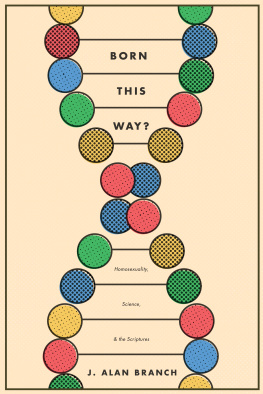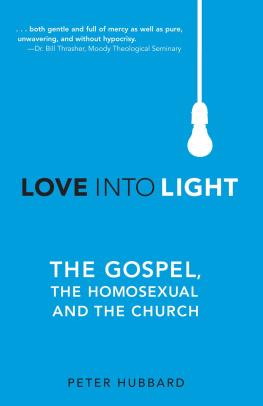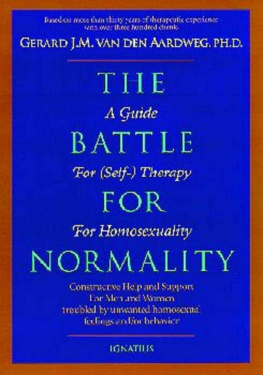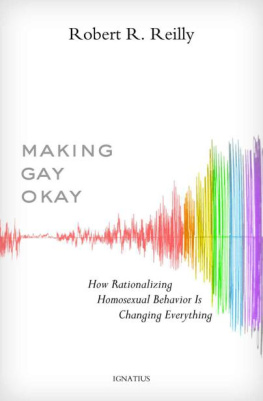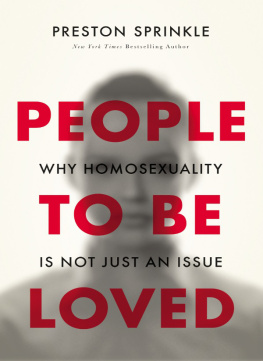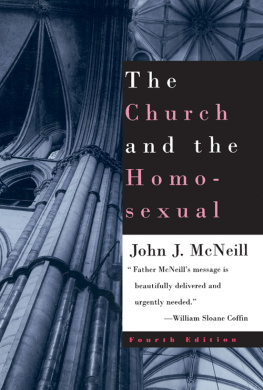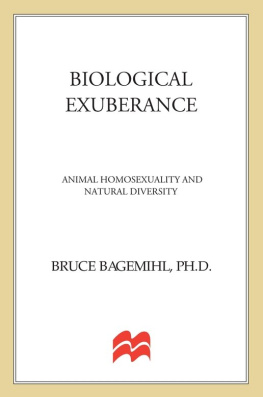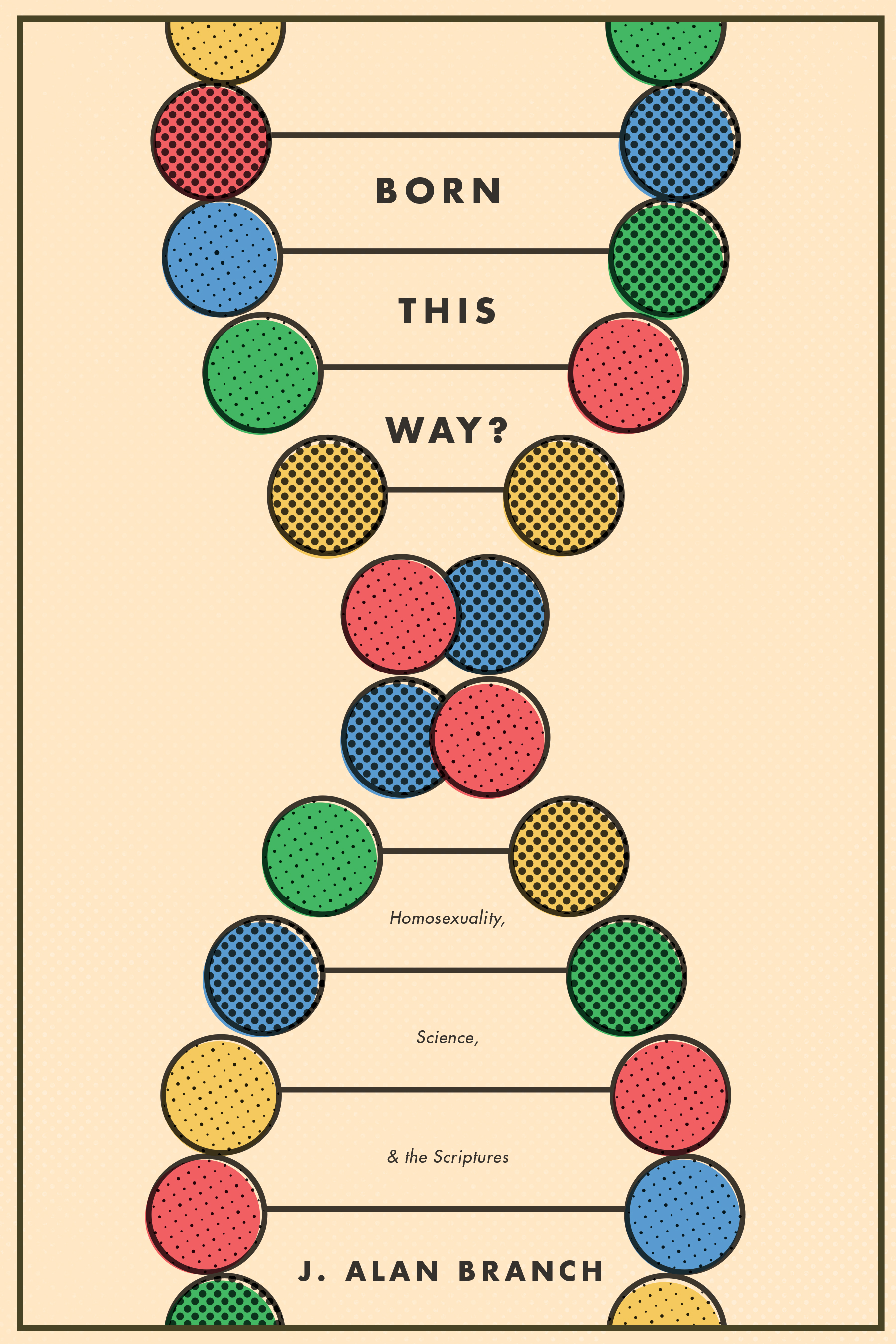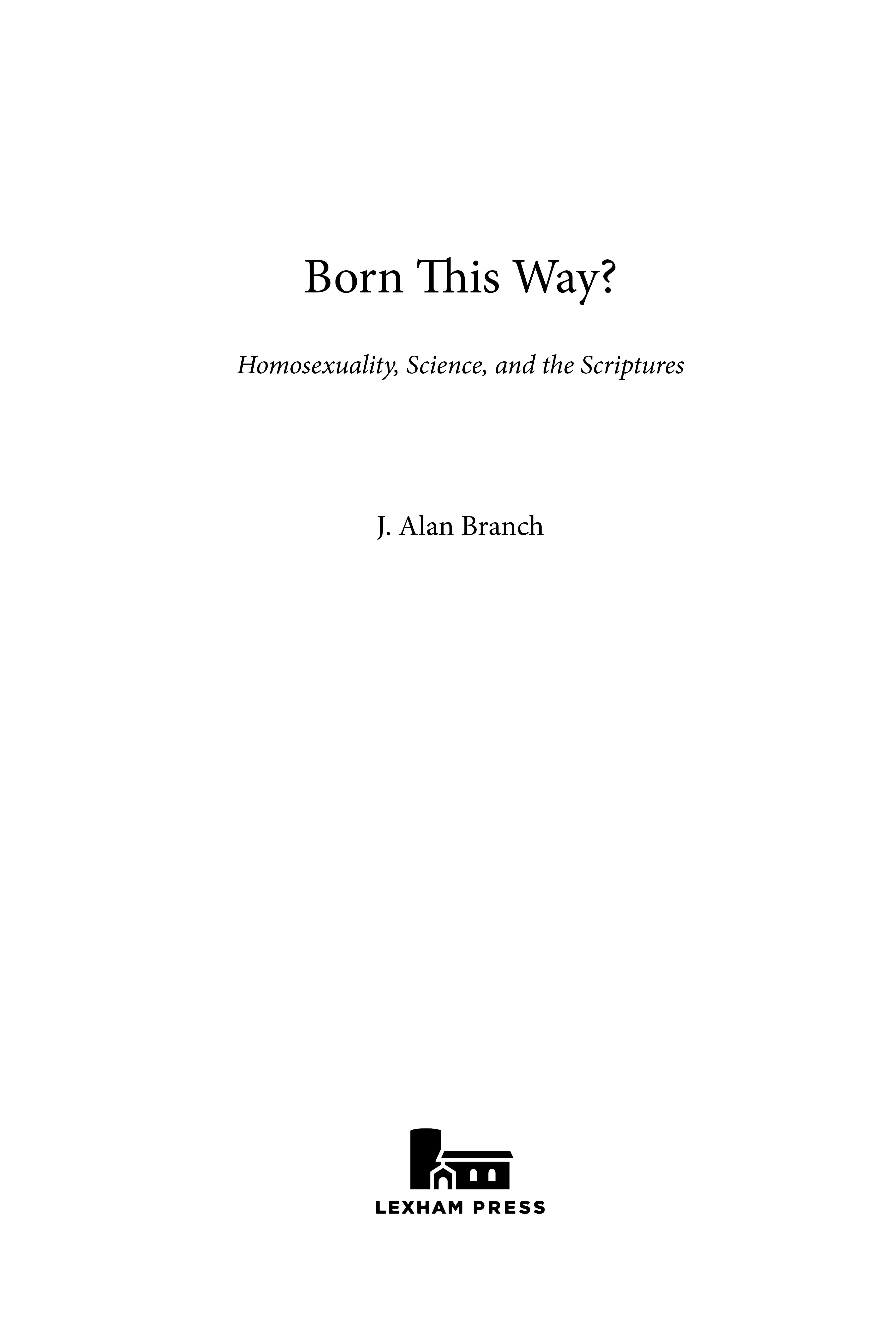This work could not have been completed without the many words of insight, correction, and encouragement from many colleagues. I would like to thank Chris Cornine, Larry Cornine, Barrett Duke, Andy Holder, Jan Hudzicki, Thor Madsen, Robert Matz, Harry Michael, Alan Tomlinson, and Rustin Umstadtt for their patient help and willingness to answer my many questions. I am especially grateful to Steve Thompson for his invaluable help in editing and friendly encouragement. I am also very thankful for Midwestern Baptist Theological Seminarys wonderful reference librarian Mrs. Judy Howie, who patiently helped me acquire an untold number of articles not normally held in a seminary library. The final conclusions are my own, and none of these friends and colleagues should be criticized for weaknesses or flaws in the presentation.
J. Alan Branch (John 10:10)
Kansas City, Missouri
October 27, 2015
Introduction
In 2011, pop music sensation Lady Gaga (Stefani Angelina Germanotta) released the song Born This Way, a tune that has become the anthem for the homosexual community. The songs lyrics articulate a crude sort of biological-genetic justification for various forms of behavior, and in many ways reflects the shared values and practices of a society infatuated with a sexually libertine ethic. Lady Gaga asserts, No matter gay, straight or bi/Lesbian, transgendered life/Im on the right track, baby I was born to survive. She then parallels sexual practices to ethnicity, celebrating people who are black, white, or beige, Chola or orient made. Her moral reflection reaches a crescendo when she says everyone is beautiful because God makes no mistakes and she is on the right track because I was born this way!
Germanottas lyrics reflect a moral reasoning common among many young people. She moves casually between the issues of sexual morality and ethnic heritage, asserting that the two are morally equivalent because each person is born this way. To add greater strength to the argument, God Himself is credited with being the author of both racial distinctions and homosexuality. The obvious inference is that homosexuality, like race, is hard-wired into who we are from birth. Since these sexual preferences are innate, they must be from God. Therefore, no moral criticism should be leveled at people involved in the homosexual lifestyle. After all, homosexuals are born this way. Signs emblazoned with the words Born This Way are now ubiquitous at rallies relating to homosexual rights.
The moral argumentation of Lady Gagas Born This Way reflects the way scientific research about homosexuality is communicated on a street level. In the last forty years, an intense effort has been underway to establish in the public mind that science confirms a biological-genetic causation for homosexual behavior, thus removing moral stigma associated with homosexual acts. Sadly, in our day of sound-bite moral reflection, most people have not thought deeply or seriously about the relationship between biology, genetics, and moral accountability. Instead of rigorously examining the topic, it is easier to engage in crude moral argumentation and say, If theres a genetic component, then people must be born that way. Its not fair to judge people for the way they are born. The assumption is that if any biological or genetic aspect of homosexuality is discovered, then it is prejudicial to form a negative moral opinion about homosexual behavior.
How should Christians respond to the born-this-way moral argument? It is not enough for us to mourn the societal slide towards Sodom and Gomorrah. We must attempt to interact with, evaluate, and respond to the research associated with homosexuality. As we do so, several questions emerge: To what degree, if any, does biology or genetics contribute to homosexuality? If there is a biological-genetic aspect of homosexual behavior at any level, then should people be held morally accountable for homosexual acts? If a biological-genetic component exists, then how do we reconcile this with the clear denunciations of homosexual behavior in Scripture?
The urgent question for us to answer is, Are homosexuals really born this way ? In this book, I hope to offer a plausible answer to these and other questions associated with the relationship between scientific research and the moral status of homosexuality. A review of the research will show that, while there are some genetic or biological factors that correlate with a higher incidence of same-sex attraction and homosexual behavior, as of yet there is no proof of genetic or biological causation for homosexuality. The vital distinction between correlation and causation is central to my argument.
Beginning with the work of Sigmund Freud and Alfred Kinsey, I will address the American Psychiatric Associations change in its stance regarding homosexuality in 1973 and 1974. Then, I will discuss research-related issues, focusing on some of the most significant findings in relation to homosexuality and brain plasticity, prenatal hormones, brain structure, twin studies, genetics, and attempts to change sexual orientation. I will conclude with a discussion concerning scientific research regarding homosexuality and Christian moral reflection. Of course, my summary of various research findings is only a snapshot in time of various arguments in 2015. More claims and counter-claims will continue to emerge in the years to come, requiring constant interaction with new assertions about homosexuality based on scientific reports.
The epithet homophobe is now casually tossed at any person disagreeing with the cultural acceptance of same-sex marriage or advocating traditional Christian sexual ethics. Calling someone a homophobe is intended to express contempt for anyone expressing moral objection to homosexual behavior, while simultaneously participating in socially acceptable abuse of the opponent. Based on two words homo (same) and phobia (fear), the word implies that anyone who disagrees with homosexual behavior is repressing a secret fear of homosexuals, giving the impression that the person critiquing pro-homosexual arguments may be ignorant or emotionally unbalanced. The term is used in much the same way as the words racist or bigot are used; calling your opponent a homophobe implies he or she is unfairly prejudiced against gays or lesbians and hates people who participate in same-sex behavior. As a result, we live in an environment of public intimidation and the erosion of free speech, leaving some Christians afraid to say anything considered remotely negative about homosexual behavior.
By calling anyone who disagrees with pro-homosexual arguments a homophobe, homosexual activists engage in a form of intellectual intimidation and coercion. By making the terms homophobe and racist morally equivalent, the homosexual activist is able to short-circuit any serious and open discussion about the roots of homosexuality. Labeling someone as a homophobe is frequently an attempt to get rid of an opponent whom a pro-homosexual activist cannot or does not want to answer.

